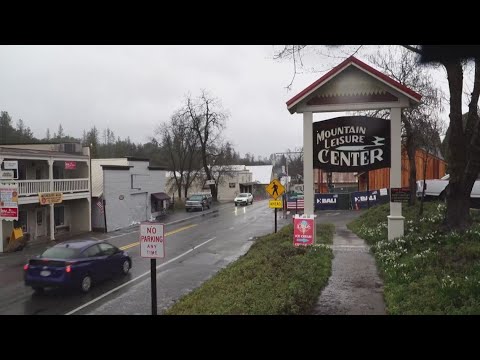“Bigelow, Arkansas Woman Sentenced to Over 12 Months: Navigating the Complexities of Justice”

In the quiet town of Bigelow, Arkansas, the echoes of a recent legal case have reverberated through the community. A woman, whose identity is shielded by the cloak of anonymity in the justice system, has been sentenced to over 12 months. This sentence, like all legal proceedings, raises questions about the complexities of justice, the factors that led to the verdict, and the consequences for both the individual and the community.
The Legal Landscape:
Bigelow, a town with a population that knows each other by name, may seem an unlikely setting for legal controversies. However, the wheels of justice turn in every corner of the world, and this case has brought the community face to face with the intricacies of the legal system.
The legal landscape in Arkansas, as in many states, is a tapestry woven with statutes, precedents, and the pursuit of justice. The sentencing of the woman in question implies a thorough examination of evidence, witness testimonies, and legal arguments. It prompts us to consider the delicate balance between punishment and rehabilitation, a balance that is crucial in maintaining a just and fair society.
The Human Element:
Behind every legal case is a human story, and the woman sentenced in Bigelow is no exception. The court proceedings may have provided a snapshot of her actions, but they do not necessarily capture the full complexity of her life. What circumstances led her to the point where she found herself entangled in the justice system? Understanding the human element is vital in addressing the root causes of criminal behavior and exploring avenues for rehabilitation.
Communities often grapple with the challenge of balancing accountability with empathy. The woman sentenced in Bigelow is not merely a case number; she is a person with a past, present, and future. Delving into her story may shed light on societal issues such as poverty, mental health struggles, or systemic inequalities that may contribute to criminal behavior.
Impact on the Community:
Legal cases, especially those resulting in sentences, have a ripple effect on communities. Bigelow, known for its tight-knit nature, must confront the consequences of the recent sentencing. How does this event affect the perception of safety, trust, and community bonds? In the aftermath of such cases, communities often grapple with the challenge of healing and rebuilding.
Support systems become crucial during these times, and it is an opportunity for the community to come together in understanding, compassion, and resilience. Exploring ways to support both the affected individual and the community at large is a testament to the strength of the social fabric.
The Role of Rehabilitation:
As the woman in Bigelow begins her sentence, the question of rehabilitation looms large. The justice system is not solely about punishment; it is also about fostering a path for individuals to reintegrate into society as productive and law-abiding citizens. Rehabilitation programs, education initiatives, and mental health support play a pivotal role in this process.
Communities can actively contribute to rehabilitation efforts by offering resources and understanding. Rather than isolating individuals who have faced legal consequences, fostering an environment that encourages personal growth and change can be transformative. This approach aligns with the belief that rehabilitation is not just a legal mandate but a societal responsibility.
Challenges in the Justice System:
The sentencing of the woman in Bigelow prompts a reflection on the challenges within the justice system. From issues of bias and discrimination to the need for reform in sentencing guidelines, the legal system is not without flaws. It is incumbent upon communities to engage in conversations about these challenges, advocating for a more just and equitable system.
Reforming the justice system requires collaboration between policymakers, legal experts, and community members. Addressing systemic issues is a complex endeavor, but it is essential for building a society where justice is not only blind but fair and compassionate.
Conclusion:
Bigelow, Arkansas, may be a small town, but its recent legal case carries weighty implications. As the woman begins her sentence, the community is faced with an opportunity to reflect, heal, and contribute to a justice system that aligns with its values. Navigating the complexities of justice involves understanding the human element, supporting rehabilitation, and addressing challenges within the legal system.
The story of the woman sentenced to over 12 months in Bigelow is not just about her; it is a mirror reflecting the strengths and weaknesses of the community and the justice system as a whole. It is a call to action for communities to come together, not only in times of celebration but also in times of challenge, to ensure that justice is not just served but served with compassion and equity.





